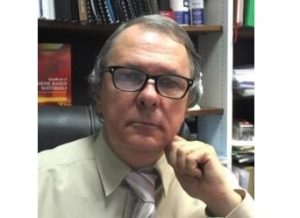Our Team
Prof. Igor Perepichka is an ERA Chair at the Department of Physical Chemistry and Technology of Polymers at Silesian University of Technology, Gliwice, Poland. He received his master’s degree in chemical engineering in 1981 from Donetsk Technical University (Ukraine) and PhD degree in Organic Chemistry in 1987 from the National Academy of Sciences of Ukraine (Institute of Physical Organic and Coal Chemistry), where he started his career as an engineer in 1981 and promoted to Senior Research Scientist in 1989.
In 2003, he moved to the UK, working first at Durham University (2003–2007) and at the University of Central Lancashire (2007-2010) before moving to Bangor University (in 2010), to take a post of Professor of Chemistry and Low Carbon Research Institute Chair. In 2019, he moved to China to take up a professorship at the newly established Institute of Flexible Electronics at Northwestern Polytechnical University in Xi’an, and in the end of 2022 joined Silesian University of Technology. During his career, while on leave, he has held numerous visiting academic positions at various universities and institutions: Humboldt Fellow at the University of Würzburg (Germany, 1995–1997), Visiting Scientist at the Nuclear Research Centre in Saclay (France, 1999), CNRS (France, 2000), Invited Professor at the University of Angers (France, 2001–2002), McGill University (Canada, 2022–2023).
His main research interests are focused on π-functional organic materials with semiconductive and conductive properties: from design and synthesis to investigation of their structure-property and structure-functions relationships and their applications in organic electronics and optoelectronics. He has coauthored over 130 papers in peer-review journals and book chapters and holds over 20 patents. The two-volume “Handbook of Thiophene-Based Materials: Applications in Organic Electronics and Photonics” (Wiley, 2009), which he edited, is still the most comprehensive book in the field and a must-have book for many researchers.


 SCOPUS ID: 7004127417
SCOPUS ID: 7004127417